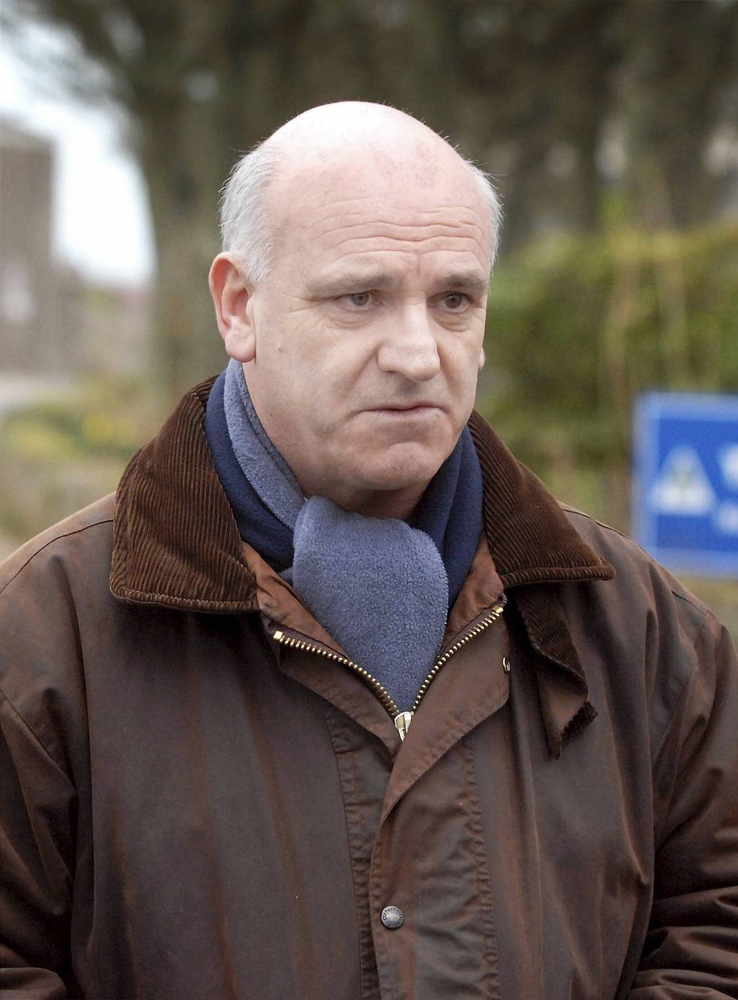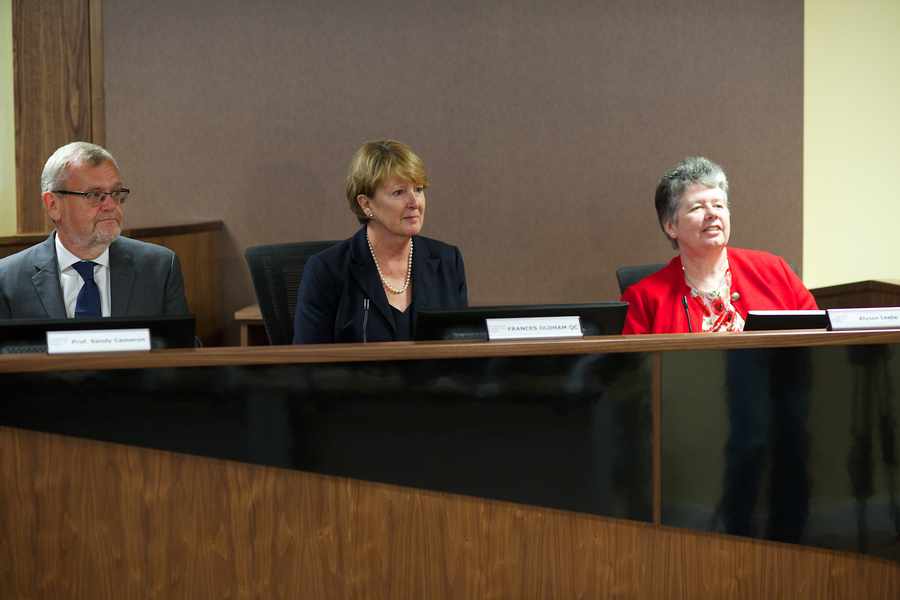- The Chief Minister says that the Independent Jersey Care Inquiry should be given as much money is needed.
- But he warns against spending taxpayers’ money carelessly and says taxes should not be raised to fund it
- There were warnings last week that costs could spiral to £50 million
- Comment: What the JEP thinks (below)
A BLANK cheque is effectively required to protect the independence of the abuse inquiry – but that should not be a green light for investigators to spend taxpayers’ money carelessly, the Chief Minister has warned.
And he said that taxes would not be raised to fund the final bill of the Independent Jersey Care Inquiry.
Following estimates that the cost of the inquiry could reach as much as £50 million, Senator Ian Gorst said it was true that the final cost of the inquiry could exceed the £20m already predicted, although he said it was not possible to say by how much.
Ireland – (Approx £100 million)
The Government of Ireland initiated an inquiry into institutional child abuse in 1999. The Commission to Inquire into Child Abuse (CICA) took 10 years to complete its task – which involved speaking to more than 1,500 witnesses.
Australia – (£260 million)
The Royal Commission in Australia began investigating institutional child sex abuse two years ago and is not due to finish until 2017. The inquiry has a budget of $500 billion Australian dollars and a team of 270 staff.
Cleveland, UK (£4 million)
He said that in order to preserve its independence the inquiry must be allowed to complete its work unhindered – a move that means a cap on its budget would simply not work.
Senator Sir Philip Bailhache, who warned that the final bill could hit £50 million and asked the public for their views, also said a cap would be ‘difficult’.
The States will later this month have the final say on upping the funding to £20m – more than three times its original £6m estimate – using reserves and amending the terms of reference for the inquiry to help keep costs down.
Those changes include adding a requirement for the inquiry to finish its work next year, limiting its investigations to events up to April 2014 and requiring it to publish its spending online every month.
Meanwhile, behind the scenes discussions about funding should that figure need to be revised upwards again are continuing.
Senator Gorst said: ‘The only actual figures are the figures that have come out from the inquiry team themselves and that was based on assumptions. So they are what we would call the best estimates. But we have to take it that things could change and we might find things during the course of the next 18 months which means that they rise again.

We asked if the States should cap the spending on the Independent Jersey Care Inquiry.
79% said yes.
21 % said no.
‘The vast majority of people understand the need for the inquiry for all sorts of reasons, not just for those people who have been abused to be able to be heard and have the Island understand what happened to them.
‘I think that changing the terms of reference to help limit costs is probably the best that we can do. I can’t see any way that we have got that would enable us to ultimately say that this is the final amount and no more because it is independent and the inquiry has to be allowed to do its work.’
Senator Bailhache added that he had been contacted by a number of people since his call for feedback. He said: ‘I have had a considerable number of responses and I think it is fair to say that hardly anyone thinks that it is sensible to spend £50 million or more on fees, mainly of English lawyers, for the abuse inquiry.
‘Some have suggested that the fees should be capped but that is difficult, if not impossible, given the terms of reference agreed by the States. Others have suggested that the terms of reference should be amended. Ministers are considering what options are available for the States.’

- 2007 Towards the end of the year the then deputy police chief, Lenny Harper, announced that the States police were investigating alleged historical child abuse at former States childrens homes. An appeal for information was also launched and the investigation was overseen by police chief Graham Power.
- 2008 Arrests relating to the abuse investigation began to be made at the end of January. Later, Mr Harper, the senior investigating officer, revealed that his team was excavating the former childrens home at Haut de la Garenne and that they had found what appeared to be a fragment of bone. The announcement led to a swathe of lurid headlines in national newspapers, which carried stories of child torture and possible murder. In August Mr Harper retired and was replaced by David Warcup and towards the end of the year Mr Warcup and the investigations new senior officer, Detective Superintendent Mick Gradwell, said that after a review of the evidence gathered, no child murders took place at Haut de la Garenne. They also concluded that no bodies had been hidden or burned. At the same time police chief Graham Power was suspended for his alleged poor handling of the abuse inquiry, but a report later found that he had been removed without proper evidence of incompetence.
- 2009 In May, the fragment of material said to potentially have been part of a childs skull was sent to botanists at Kew Gardens at the request of Det Supt Gradwell. The report that followed confirmed that it was, in fact, a piece of coconut. Also, Islanders arrested and convicted of abuse offences as part of the investigation began to be sentenced in 2009 as well.
- 2010 The Wiltshire Constabularys report an independent review of the handling of the Haut de la Garenne investigation into child abuse was published in 2010. It levelled strong criticism at former police chief Graham Power and his deputy, Lenny Harper, for their handling of the investigation. The Roya l Court secured convictions against the last people involved in the abuse investigation. Following this, the victims of child abuse received a formal apology from the then Chief Minister, Terry Le Sueur, who said that they had been let down by the system. In June, 40 people who claimed they had suffered abuse while in States care made compensation claims. The year 2010 also saw a report into the financial management of the abuse investigation published in July. It found that public funds had been misspent on expensive meals, accommodation and first-class travel. It also emerged that the total police costs for the three-year investigation had reached £7.5m.
- 2011 Following a proposition brought by Senator Francis Le Gresley, the States agreed to hold an inquiry into allegations of historical child abuse after the Haut de la Garenne investigation.
- 2012 After a former Islanders book was published, making claims of abuse at the former Grouville Girls Home, the police confirmed that six women had made complaints about the home to the force during the course of the historical child abuse investigation. However, the police said that there was too little evidence in relation to the claims to mount a prosecution. 2012 also saw Jimmy Savile linked to Haut de la Garenne after pictures of the disgraced BBC star surfaced and were published in newspapers and online.
- 2013 – It was hoped that the public inquiry into historical child abuse would get going in 2013, but half-way through the year Sally Bradley QC, the States-appointed chairman of the Committee of Inquiry, suffered a stroke. The inquiry was delayed while a new chairman was found. A few months later Frances Oldham QC, a senior lawyer with extensive experience in dealing with cases involving sexual abuse, was appointed to lead the inquiry, joined by abuse inquiry panel members Alyson Leslie, who has led serious case reviews into child abuse, and Sandy Cameron CBE, a former director of social work in Scotland. In one of the last States sittings of the year, it was revealed that 64 per cent of claims for compensation for historical abuse had been settled. Chief Minister Ian Gorst said that 131 claims had been received, 84 offers of compensation had been accepted, with 47 cases still under consideration.

- 2014 In April, Ms Oldham opened the inquiry and set out the terms of reference for proceedings. Hearings began in September and so far the independent Jersey Care Inquiry has heard evidence from 150 former residents of States-run childrens homes including Haute de la Garenne, Sacre Coeur, La Preferance, and more recently, Les Chenes, plus family group homes and foster care. The inquiry has dealt with the evidence from the 1940s and is currently working on the period from the 1990s onwards.
- 2015 The Chief Minister, Ian Gorst, last week lodged a proposition with the States asking for an extra £14m to bring the inquirys budget which was originally £6m – up to £20m. The inquiry expects to have heard evidence from all witnesses who have so far come forward by early March. The inquiry will then move on to hear evidence from alleged abusers, those working in childrens homes, whistle-blowers, foster parents and Childrens Services. It will then hear evidence about the 2008 police investigation into child abuse at Haute de la Garenne, known as Operation Rectangle, and decisions made by the Law Department in respect of prosecutions following the investigation.
CHIEF Minister Ian Gorst is right to attempt to strike a balance between securing the independence of the Jersey Care Inquiry and protecting public funds.
The question is whether the uneasy compromise described on today’s front page is going to work. To do so, it must succeed in ensuring that the inquiry is able to leave no stone unturned.
And having heard many allegations, it must also allow those who have been accused of terrible wrongs to respond. Anything short of that would be an affront to natural justice.
Equally, a blank cheque must not be a green light to unchecked spending.
To think that today’s statement amounts to a win-win is far from the truth.
The mechanisms proposed to control costs – to alter terms of reference, limit the timeframe of the panel’s remit and require it to publish a monthly spending statement – are fraught with difficulties.
It is essential that that there is transparency about how taxpayers’ money is spent. Full disclosure is the best way to achieve accountability and control.
The alternative – self-serving secrecy and an arrogant assumption by those in charge that Islanders do not have a right to know – went some way to getting the Island into this mess in the first place.







